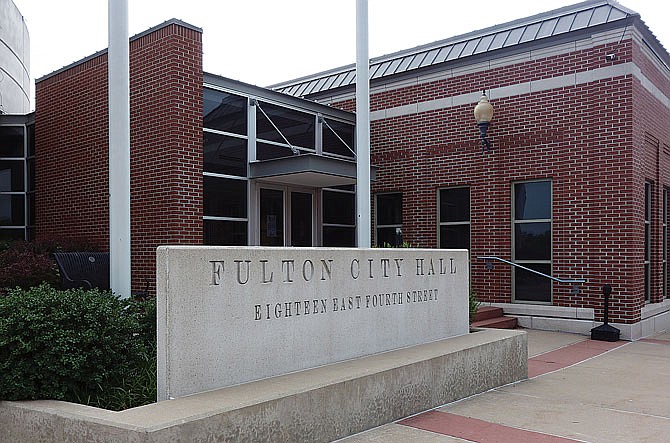Fulton City Council members came to an agreement about one change to the city's recycling programs Tuesday evening.
The city is moving the yard waste collection bins to the city warehouse, 1303 Westminster Ave., in hopes of cutting down on illicit dumping by commercial businesses and non-residents.
"As for the yard waste, via no dissent, we will be moving forward with that," Mayor Lowe Cannell said in a follow-up email Wednesday. "I do not have a timeline, but we will need to inform the citizens through Facebook as well as the newspaper, so it will take a bit of time."
All other proposed changes - having the county chip in on household hazardous waste disposal, upping the residential waste rate, raising fees to rent a recycling cart from the city and more - are still in the air after a lengthy discussion during the most recent City Council meeting.
The city loses around $195,000 annually on its three main recycling programs: residential recycling, household hazardous waste and yard waste collection, Fulton Assistant Director of Administration Robert Boone said. And the solid waste department's 2021 budget is already looking tight, Director of Administration Bill Johnson said.
Johnson said the city aims to replace one of its 10 solid waste collection trucks each year. As it currently stands, the solid waste department's proposed budget doesn't include truck replacement.
"Solid waste does have a $150,000 budget surplus right now, but that's not enough for a truck," Johnson said. A new waste collection truck costs about $225,000, plus more for extra features. "We're running short $100,000 for the coming year."
Fulton City Council members and administration are looking at potential cost-saving measures for the department, and since the recycling program is costly, it's currently under close examination. City Council members have ruled out eliminating it entirely, however.
"There are a lot of citizens who like it," Johnson conceded.
Johnson noted the market for recyclables isn't what it was even four years ago. The city was able to find a partner to purchase used glass - it gets spun into fiberglass insulation - but plastics and paper products just aren't in demand.
"The demand has really, really dropped," he said. "I'm not sure how much of the recycling we're taking is actually being recycled."
Ward 2's Jeff Stone suggested distributing information to customers about what recyclable products are actually in demand and encouraging them to put the rest in with their regular waste.
"If the volume goes down, that total cost will go down," Stone said.
Much conversation Tuesday centered around the residential recycling program. All Fulton residential waste customers may participate in the program for free by simply bagging up their recycling and setting it out on the curb for trash collectors. It costs an extra $1 per month to rent a recycling cart from the city, and each cart costs the city $56 to purchase.
Ward 3 council member John Braun suggested increasing the cost to rent a cart.
"People are willing to pay more," he said.
Stone noted if the cost of renting a cart goes up, people may simply stop renting them and switch to putting bags of recycling on the curb, putting an increased burden on trash collectors.
"If we're going to raise costs, I think we need to make it mandatory (for residential recycling customers) to have a cart," Ward 4's Rick Shiverdecker said.
Ward 1's Ballard Simmons made a motion to increase the cost of cart rental to $5 per month - a figure, he said, he chose arbitrarily so discussion on the subject could continue. The motion was later voted down unanimously.
"There's a saying, 'Shear the sheep, don't skin the sheep,'" Ward 4's Bob Washington said. "We need to gradually raise that."
Stone said he's not happy with the idea of using cart rental to fund the residential recycling program when, until now, the cost of participation was rolled in with the monthly solid waste bill.
Of the three recycling programs, only the household hazardous waste program is open to Callaway County residents who live outside Fulton. When Fulton launched its household hazardous waste collection program in 2010, it was supported by a grant, which expired in 2016. The program now costs the city about $32,400 annually. Around half of individuals who drop off household hazardous waste are non-Fulton residents.
Johnson said he approached Callaway County Presiding Commissioner Gary Jungermann about chipping in.
"He made an offer of about $10,000 a year in assistance," he said.
That deal hasn't yet been finalized.
Discussion about Fulton's recycling programs will continue at future City Council meetings.
"It seems like we have quite a bit more to talk about to get to a decision," Cannell said.

